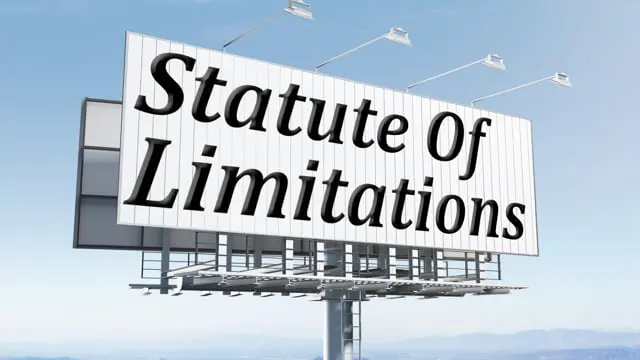Being served with legal papers can be a daunting experience. It’s essential to understand your rights, the steps you need to take, and when to seek legal assistance. This comprehensive guide will help you navigate the process and ensure you respond appropriately to protect your interests.
Understanding Legal Papers
Legal papers, also known as process papers, are official documents that inform you of legal actions being taken against you or that you are involved in. These documents can include summonses, complaints, subpoenas, or other court orders. Understanding the type of document you have been served with is crucial in determining your next steps.
Types of Legal Papers:
- Summons: A documento that notifies you of a lawsuit filed against you and requires your response.
- Complaint: A detailed statement of the plaintiff’s claims and the basis for the lawsuit.
- Subpoena: An order to appear in court or produce documents.
- Órdenes judiciales: Instructions issued by a judge that require specific actions.
Each type of document has its own requirements and deadlines, so it’s important to read them carefully and understand what is being asked of you.
Immediate Steps to Take
Upon being served with legal papers, there are several immediate steps you should take to ensure you handle the situation properly:
1. Read the Documents Thoroughly: Carefully read all the documents to understand the nature of the legal action, the deadlines for your response, and any court dates or requirements.
2. Note Important Deadlines: Legal papers often come with strict deadlines for responding. Failing to meet these deadlines can result in default judgments against you. Mark these dates on your calendar and prioritize meeting them.
3. Verify the Authenticity: Ensure that the papers you have received are legitimate. Look for official court stamps and signatures. If you have any doubts, contact the court or a legal professional to verify.
4. Do Not Ignore the Papers: Ignoring legal papers will not make the issue go away. In fact, it can lead to severe consequences, including default judgments, fines, or other legal penalties. Address the situation promptly.
5. Keep Copies: Make copies of all the documents you have received. This ensures you have a record of everything and can provide your lawyer with the necessary information.
Conozca sus derechos
Being served with legal papers can be intimidating, but it’s important to know that you have rights and options:
1. The Right to Representation: You have the right to seek legal representation. A lawyer can help you understand the documents, advise you on the best course of action, and represent you in court if necessary.
2. The Right to Respond: You have the right to respond to the allegations or claims made against you. This might involve filing an answer to the complaint, submitting motions, or providing the requested documents.
3. The Right to Challenge: If you believe the service of process was improper or that the claims against you are unfounded, you have the right to challenge them in court. This could involve filing motions to dismiss or other legal defenses.
4. The Right to Privacy: Your personal information should be protected throughout the legal process. Ensure that any sensitive information is handled appropriately and request redaction if necessary.
Responding to Legal Papers
Responding to legal papers appropriately is crucial to protecting your rights and interests. Here are the steps to follow:
1. Seek Legal Advice: Consult with a lawyer as soon as possible. A legal professional can help you understand the documents, evaluate your options, and guide you through the response process.
2. File an Answer: If you have been served with a complaint, you will need to file an answer with the court. This document outlines your response to the allegations and any defenses you may have. Your lawyer can help you draft this document.
3. Submit Required Documents: If you have been served with a subpoena, you may need to provide specific documents or appear in court. Ensure you comply with these requirements and seek legal advice if you have any concerns.
4. Attend Court Hearings: If your case involves court hearings, make sure you attend them. Failure to appear can result in negative consequences, including default judgments or other penalties.
5. Consider Settlement Options: In some cases, it may be beneficial to settle the matter outside of court. Your lawyer can help you negotiate a settlement that protects your interests and resolves the dispute.
Service of Process
Service of Process is a crucial aspect of the legal system, ensuring that individuals are properly notified of legal actions against them. The rules for serving legal papers vary by jurisdiction, but they generally require that the papers be delivered in a manner that ensures the recipient receives them. This can include personal delivery, delivery to a household member of suitable age, or posting the documents in a conspicuous place followed by mailing them.
Importance of Proper Service: Proper service of process is essential for upholding due process rights. If the service is not conducted correctly, it can be grounds for challenging the validity of the service and potentially the entire lawsuit.
Challenging Improper Service: If you believe that the legal papers were not served correctly, you can file a motion to quash the service. This motion asks the court to declare the service invalid and require the plaintiff to serve you properly.
Jurisdiction and Venue
Jurisdiction refers to a court’s authority to hear a case and make legal decisions. It is determined by the nature of the case and the location of the parties involved.
Personal Jurisdiction: For a court to have personal jurisdiction over you, there must be sufficient connections between you and the jurisdiction where the court is located. This can include residing in the state, conducting business there, or committing a tort within the state.
Subject Matter Jurisdiction: This refers to the court’s authority to hear the type of case being presented. For example, federal courts have jurisdiction over cases involving federal laws, while state courts handle cases involving state laws.
Venue: Venue determines the specific location within the jurisdiction where the case will be heard. Proper venue ensures that the case is heard in a convenient location for both parties and witnesses.
Challenging Jurisdiction or Venue: If you believe the court does not have proper jurisdiction or that the venue is incorrect, you can file a motion to dismiss or transfer the case. Your lawyer can help you assess whether such a challenge is appropriate in your situation.
Default Judgments
A default judgment occurs when a defendant fails to respond to a lawsuit within the required time frame. The court may enter a judgment in favor of the plaintiff without hearing the defendant’s side of the story.
Consequences of Default Judgment: Default judgments can have serious consequences, including the imposition of damages, garnishment of wages, or liens on property. It is crucial to respond to legal papers promptly to avoid these outcomes.
Setting Aside a Default Judgment: If a default judgment has been entered against you, it may be possible to have it set aside. Common grounds for setting aside a default judgment include improper service, excusable neglect, or a meritorious defense. Filing a motion to vacate the judgment can provide an opportunity to present your case.
Pretrial Motions
Pretrial motions are legal requests made before the trial begins, aiming to resolve certain issues and streamline the litigation process. Understanding these motions can help you effectively respond to legal papers.
Motion to Dismiss: This motion asks the court to dismiss the case for various reasons, such as lack of jurisdiction, improper service, or failure to state a claim upon which relief can be granted. If successful, the case may be dismissed without going to trial.
Motion for Summary Judgment: This motion asserts that there are no genuine disputes of material fact and that the moving party is entitled to judgment as a matter of law. If granted, it can result in a judgment in favor of the moving party without a trial.
Motion to Compel: This motion requests the court to order the opposing party to comply with discovery requests, such as producing documents or answering interrogatories. It helps ensure that both parties have access to the necessary information for their case.
Recursos legales
Legal remedies refer to the solutions or compensation sought by a plaintiff in a lawsuit. Understanding these remedies can help you gauge the potential outcomes of the case.
Daños y perjuicios: Monetary compensation awarded to the plaintiff to cover losses suffered due to the defendant’s actions. Damages can include compensatory damages (for actual losses), punitive damages (to punish and deter wrongful conduct), and nominal damages (symbolic compensation for rights violations).
Medidas cautelares: Court orders that require the defendant to do or refrain from doing specific actions. Injunctions can be temporary (issued during the litigation) or permanent (issued as a final judgment).
Rendimiento específico: An equitable remedy requiring the defendant to fulfill their contractual obligations. This remedy is often used in cases involving unique goods or real estate, where monetary compensation would be inadequate.
Additional Legal Considerations
Due Process: Due process is a fundamental legal principle ensuring fair treatment through the judicial system. It includes the right to be notified of legal actions, the right to a fair hearing, and the right to present a defense. Understanding due process is crucial for navigating legal proceedings.
Access to Justice: Access to justice involves ensuring that individuals can obtain legal representation and pursue their legal rights. Barriers to access, such as high legal fees or lack of information, can hinder individuals from effectively participating in the legal system.
Public Interest Litigation: Public interest litigation seeks to address broader societal issues and protect collective rights. It often involves cases that have significant implications for public welfare, such as environmental protection, consumer rights, or civil liberties.
Legal Realism: Legal realism is a theory that emphasizes the practical application of law and the influence of social, economic, and political factors on judicial decisions. Understanding this theory can provide insights into how courts may approach certain cases.
Critical Legal Studies: Critical legal studies examine the power dynamics within the legal system and challenge traditional legal doctrines. This perspective can help identify potential biases and advocate for more equitable legal practices.
Practical Legal Advice
Steps to Take Immediately: Upon being served with legal papers, follow these steps to protect your interests:
- Read and understand the documents.
- Note important deadlines.
- Verify the authenticity of the papers.
- Seek legal advice promptly.
- Keep copies of all documents.
Elegir al abogado adecuado: Selecting the right attorney is crucial for effective legal representation. Consider factors such as the lawyer’s experience, specialization, reputation, and communication style. Schedule consultations to discuss your case and assess whether the attorney is a good fit.
Preparing for Court: Preparing for court involves gathering evidence, organizing documents, and understanding court procedures. Work closely with your attorney to develop a strong case strategy and practice your testimony if required to appear in court.
Negotiating Settlements: Liquidación negotiations can offer a quicker and less costly resolution to a legal dispute. Consider the potential benefits and drawbacks of settling and work with your attorney to negotiate favorable terms. Be prepared to compromise and prioritize your main objectives.
Understanding Legal Terminology: Familiarize yourself with common legal terms to better understand the proceedings and communicate effectively with your attorney. Key terms include plaintiff, defendant, motion, discovery, deposition, and verdict.
Conclusión
Being served with legal papers can be a stressful and confusing experience, but understanding the process and knowing your rights can help you navigate it more effectively. By taking immediate action, seeking legal advice, and responding appropriately, you can protect your interests and ensure a fair resolution. This guide provides a comprehensive overview of the steps you need to take and the resources available to help you through this challenging time. Remember, knowledge is power, and being informed is the first step toward successfully managing any legal issue.
Key Features of Attorneys.Media:
- Educational Video Content: The platform demystifies complex legal concepts through video interviews, making it easier for individuals to grasp various aspects of the law.
- Expert Insights: Interviews with specialized lawyers provide in-depth understanding of legal processes, rights, and considerations in different contexts.
- Public Resource: Abogados.Media serves as a dynamic resource for those seeking legal information, catering to the growing preference for visual and auditory learning.
- Professional Visibility: For profesionales del derecho, the platform offers a unique opportunity to showcase expertise and engage with a broader audience, potentially expanding their client base.
- Broad Spectrum Coverage: The video interviews cover a wide range of legal topics, enhancing public knowledge about legal matters in Derecho Civil, Derecho penal y Otras cuestiones jurídicas.
Business Model:
- Educación pública: Enhancing the public’s understanding of legal issues and Comentario jurídico through accessible video content.
- Attorney Promotion: Providing attorneys with a platform to highlight their expertise and connect with potential clients. GET INTERVIEWED.
Unique Approach:
Abogados.Media represents a modern approach to legal education and consultation. It facilitates public knowledge of legal issues and connects individuals with local attorneys for consultations, promoting a better-informed society.
This unique combination of educational content and professional promotion positions Attorneys.Media as a valuable resource for both the general public and legal professionals.








